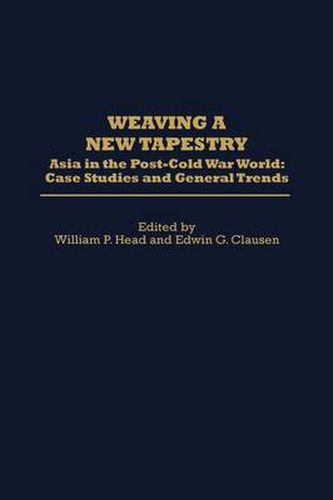Readings Newsletter
Become a Readings Member to make your shopping experience even easier.
Sign in or sign up for free!
You’re not far away from qualifying for FREE standard shipping within Australia
You’ve qualified for FREE standard shipping within Australia
The cart is loading…






The fall of communism in the Soviet Union and Eastern Europe has affected nations throughout the world. This broad-based study examines how this major historical event has influenced the governments, societies, economies, and foreign relations of Asia. The work of 15 scholars is divided into three sections: Economic Development and Environmental Impact; Politics and Foreign Relations; and Social and Women’s Issues. Chapters span the far reaches of Asia, from Japan to Pakistan, from China to the Philippines.
This first thorough interdisciplinary analysis concludes that nations such as Japan, India, and the Philippines have been less influenced than China, Korea, and Vietnam. In each case, while direct impact of the end of the Cold War has been minimal, there is strong evidence of more subtle effects. The breadth of the regional coverage and the diversity of the subject matter will interest scholars and researchers alike. The authors pose as many questions as they answer, and their conclusions are certain to stimulate debate.
$9.00 standard shipping within Australia
FREE standard shipping within Australia for orders over $100.00
Express & International shipping calculated at checkout
The fall of communism in the Soviet Union and Eastern Europe has affected nations throughout the world. This broad-based study examines how this major historical event has influenced the governments, societies, economies, and foreign relations of Asia. The work of 15 scholars is divided into three sections: Economic Development and Environmental Impact; Politics and Foreign Relations; and Social and Women’s Issues. Chapters span the far reaches of Asia, from Japan to Pakistan, from China to the Philippines.
This first thorough interdisciplinary analysis concludes that nations such as Japan, India, and the Philippines have been less influenced than China, Korea, and Vietnam. In each case, while direct impact of the end of the Cold War has been minimal, there is strong evidence of more subtle effects. The breadth of the regional coverage and the diversity of the subject matter will interest scholars and researchers alike. The authors pose as many questions as they answer, and their conclusions are certain to stimulate debate.